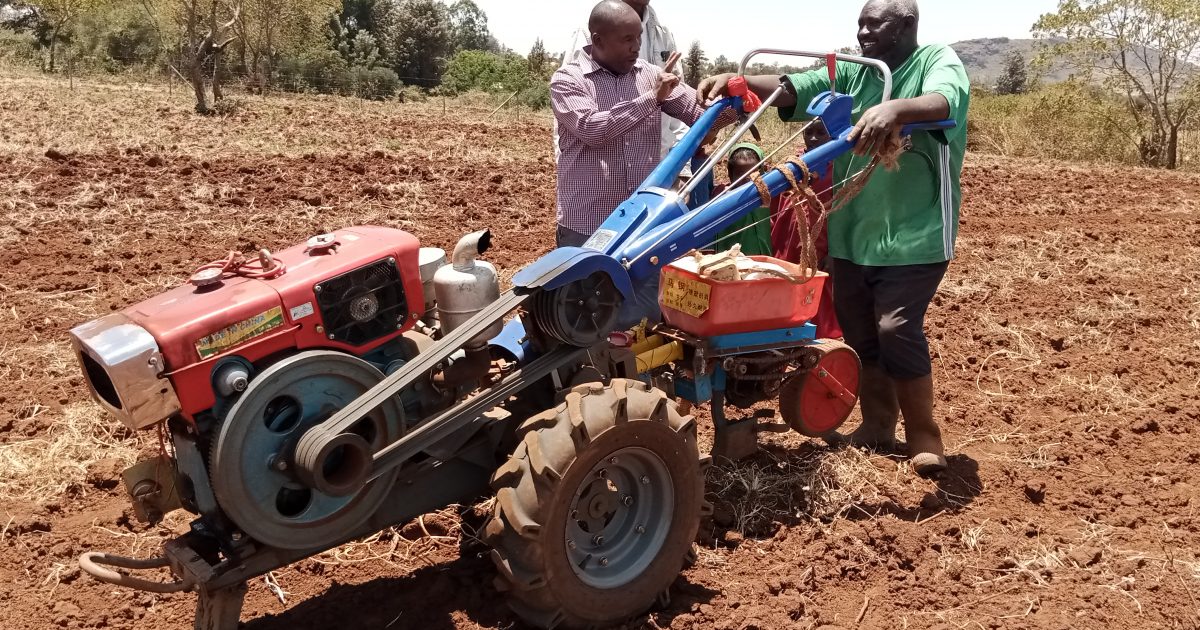Farmers in Marsabit County are prepared for the anticipated heavy rains with farm preparations in full gear, even as the county government plans for a 10-ton subsidy of crop seed.
The county, which has experienced prolonged drought expects to put an estimated 6,000 acres of land under crop cultivation this season.
The coordinator of the Agriculture Sector Development Support Programme II (ASDSP) Patrick Nthenge said that 3,000 acres were previously under food crop farming, adding that local communities who are predominantly pastoralists have been guided to diversify into crop farming.
Nthenge pointed out that heavy rains have been forecasted for the region and urged farmers to ensure that their parcels of land are prepared for planting before the start of the rains.
“The county government has availed tractors to enable farmers to plough their farms at a reasonable fee,” he noted, urging them to make use of the service for increased production.
He said that the government was sourcing for seeds to distribute to needy farmers in order to boost production and make the county food secure.
Nthenge who was speaking to KNA in Manyatta Afya area in Dakabaricha location of Saku constituency, when he assessed the readiness of farmers for the forecast El-Nino rains, said that there has been a challenge of shortage of fast maturing seed varieties, but which the county government had now managed to navigate.
“There has been a shortage of the crop seeds suited for semi-arid areas like our county, but we have been able to source for our beneficiaries,” he said, assuring the targeted farmers that they would be receiving their share in a week’s time.
The coordinator pointed out that much was being done to enable the local communities who have been hardest hit by negative effects of climate change to build resilience and that an assortment of crop seeds including maize, beans, green grams and cow peas would be distributed to the farmers.
However, the subsidy would not be adequate and able famers are encouraged to source for more seeds.
Nthenge further described the failure by local agro-vet shop operators to stock the required seeds as the major drawback to the endeavor and challenged them to reverse the trend.
He said that farm inputs were the biggest bottleneck to the redoubled effort by local farmers to maximize production and called on the operators to make farm inputs readily available.
A farmer at Manyatta Afya, Omar Moyo whom KNA found planting maize using a walking tractor said he was unable to get the maize seed varieties for the drylands from stockists in Marsabit town.
Moyo said farmers were forced to use uncertified seeds secured from their previous harvest because they do not want to be late in planting and asked the government to make the subsidized seeds available before the onset of the rains.
He expressed fear that the El-Nino rains may cause destruction like flooding, soil erosion and landslides and asked the relevant authorities to sensitize residents about the extraordinary rains.
Farmers decried the poor state of feeder roads in the area and urged the government to address the problem before the El-Nino rains expected next month.
“We are also anxious that the forecast heavy and prolonged rain might lead to an upsurge of diseases like malaria and that is why we are asking the government to make preparations on how to deal with it,” said Moyo.
He called on the government to make arrangements to help farmers in marketing their anticipated good harvest saying brokers have always been a challenge to them.
However, Nthenge assured the farmers that strategies were being put in place to ensure that farmers are shielded from pre- and post-harvest losses.
By Sebastian Miriti




